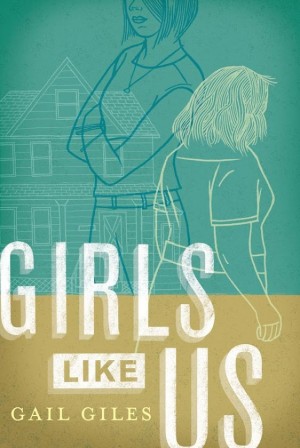Girls Like Us are not so different
 Star Rating: Three out of Five
Star Rating: Three out of Five
Who are Girls Like Us? They are girls with disabilities, who fall a little behind because society is not as accessible. Gail Giles aims to tell the story of two of those girls, and her novel somewhat achieves her purpose.
“Speaking as someone who is herself disabled, I think that it’s a very good book, particularly for being written by an abled person,” wrote Bijou, a user on the Goodreads forum. “I always cringe when I see books about ‘special needs’ individuals (such as myself) written by people who misunderstand us and perpetuate stereotypes about us. Usually I don’t even bother reading them, to be honest, but I am fairly glad I picked up this one. It does play into stereotypes quite a lot, but spends a lot of time trying to break them as well.”
The novel follows two girls, hot-tempered Quincy and sweet, caring Biddy, who are struggling to continue their lives after high school. The world is not the kindest to those who are different, and the girls have to navigate through adulthood in a society that is impatient and not at all understanding. Forced to band together, the girls struggle through with each other, and do the best they can.
The girls both deal with some heavy subject matter, heart-wrenching and horrible. The entire novel is one pretty much tragedy after another for its main characters. The book is terribly sad and needs a bit more lightening up to balance out such weighty issues.
A negative side of the book is the portrayal of the narrators’ voices. Both girls have the same sort of speech patterns, and the same Southern accent usually used to denote a lack of intelligence. Miss Elizabeth, their companion, has no such accent; she speaks “properly.” It seems problematic to play up the stereotypical troubles with English in two girls with disabilities.
“The use of the Southern American English accent for both girls unfortunately will evoke a negative response in many readers,” wrote Pamela, another Goodreads user. “Writers have long used this accent as a shorthand for someone who is uneducated, poor, or in a low social status. It’s become a kind of shorthand for ‘white trash.’ […] By having both Biddy and Quincy speak this way, but not Elizabeth, Giles is intimating that these girls, because of their manner of speaking, are already, in a way, intellectually ‘behind’ others.”
Indeed, in a book attempting to bridge gaps of understanding, playing on stereotypes is a cheap gimmick. However, the story is still worth reading. Because of its subject matter, it may be inappropriate for those younger than high school.

Brianne is an aspiring writer with many poems and short stories filed away. Her current project is a full-length novel she hopes to publish. She is very...
